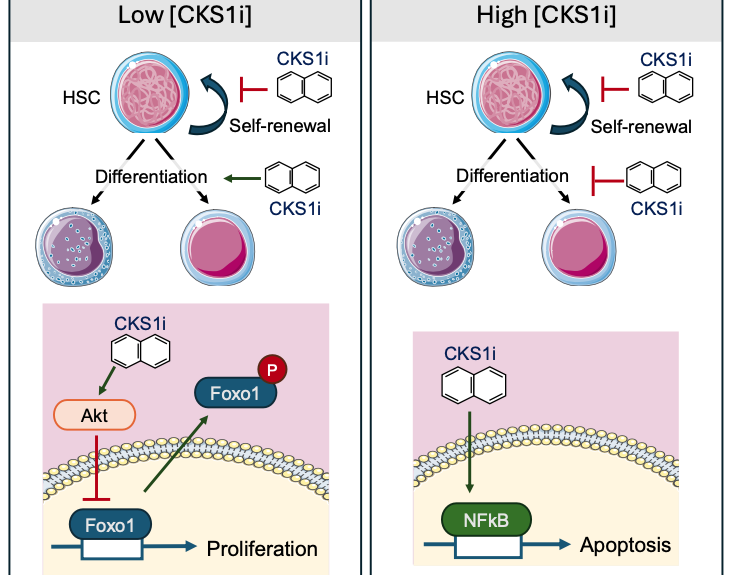PROJECT OVERVIEW
Highlights
PROJECT DETAILS
- Research Name Ex vivo modelling reveals low levels of CKS1 inhibition boost haematopoiesis via AKT/Foxo1 signalling
- Journal Experimental Haematology
- Year 2025
- Link https://www.exphem.org/article/S0301-472X(25)00059-1/abstract

Abstract
Hematopoietic stem cells (HSCs) are rare cells residing at the top of the haematopoietic hierarchy capable of reconstituting all blood cell populations through their ability of self-renewal and differentiation. Their ability to maintain haematopoiesis can be majorly depleted by chemotherapeutic agents, leading to a long-term bone marrow injury. However, pre-clinical studies have focused on the acute effects of chemotherapy, leaving the lasting impact on healthy cells poorly understood. To study this, we combined rapid ex vivo models to study the long-term/late-stage effects of a cyclin-dependent kinase subunit 1 (CKS1) inhibitor. Inhibition of CKS1 has been shown to protect healthy HSCs from chemotherapy during acute myeloid leukaemia, and here we show a dose-dependent role of long-term CKS1 inhibition on haematopoiesis, either boosting B lymphopoiesis or ablating HSC proliferation capacity, dependent on the context. Mechanistically, low doses of the CKS1 inhibitor (CKS1i) affects AKT-Foxo1 signalling potentiating B-cell differentiation, but impairing HSC proliferation. These results reveal a novel role for CKS1 in boosting B lymphopoiesis and propose the use of rapid ex vivo models to investigate the long-term effects of chemotherapeutic treatments targeting HSCs with the potential of reducing late adverse effects.